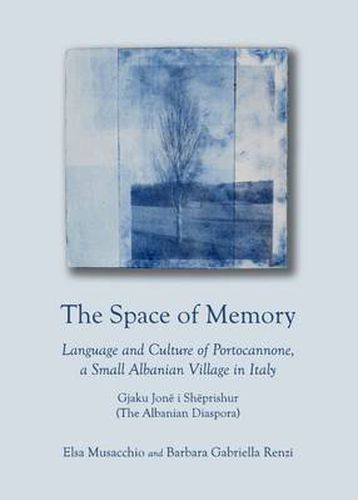Readings Newsletter
Become a Readings Member to make your shopping experience even easier.
Sign in or sign up for free!
You’re not far away from qualifying for FREE standard shipping within Australia
You’ve qualified for FREE standard shipping within Australia
The cart is loading…






In 2000, two linguistic endangerment experts, Nettle and Romaine, estimated that among the world’s 6000 languages, only about 600 could be considered safe today. Arberesh, the language that Barbara Renzi and Elsa Musacchio present to the readers in this volume, is one of those languages in danger of dying, recognized as such in UNESCO’s Atlas of the World’s Languages in Danger (2010). The great value of this volume is not limited to the preservation and analysis of cultural heritage through the tales, stories and songs included in it, but also in recording the authentic sound of the Arberesh language that comes to life in Elsa’s voice as she reads the collected material on a special CD. The availability of this authentic voice to future generations of younger speakers of Arberesh makes the volume a practical linguistic and cultural tool. And the best service we can pay to courageous works like this is to bring them to young speakers in their schools, without which Arberesh and other endangered languages have a very small chance of survival. - Eda Derhemi (PhD), University of Illinois at Urbana-Champaign
$9.00 standard shipping within Australia
FREE standard shipping within Australia for orders over $100.00
Express & International shipping calculated at checkout
In 2000, two linguistic endangerment experts, Nettle and Romaine, estimated that among the world’s 6000 languages, only about 600 could be considered safe today. Arberesh, the language that Barbara Renzi and Elsa Musacchio present to the readers in this volume, is one of those languages in danger of dying, recognized as such in UNESCO’s Atlas of the World’s Languages in Danger (2010). The great value of this volume is not limited to the preservation and analysis of cultural heritage through the tales, stories and songs included in it, but also in recording the authentic sound of the Arberesh language that comes to life in Elsa’s voice as she reads the collected material on a special CD. The availability of this authentic voice to future generations of younger speakers of Arberesh makes the volume a practical linguistic and cultural tool. And the best service we can pay to courageous works like this is to bring them to young speakers in their schools, without which Arberesh and other endangered languages have a very small chance of survival. - Eda Derhemi (PhD), University of Illinois at Urbana-Champaign